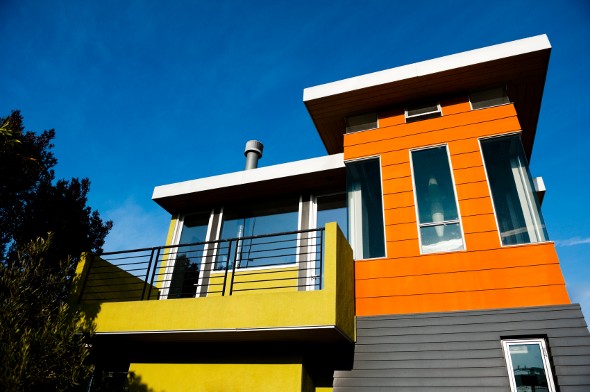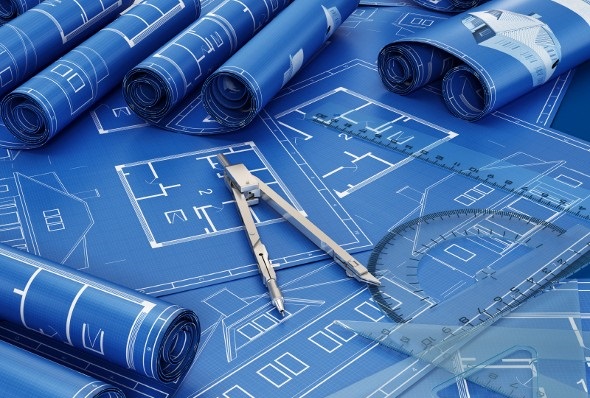The Pros and Cons of Prefab Homes. If you can’t find a house you want to buy you may be tempted to build your home yourself. In that case, you’ll need to choose between a stick-built house and a prefab home. Stick-built means your home is built the old-fashioned way, with a crew of workers on site for months raising the home and fitting it with plumbing and electricity. A prefab home, on the other hand, comes in pre-built parts.
 What Is a Prefab Home?
What Is a Prefab Home?
The term “prefab” is the abbreviation for prefabricated, which is all you need to know about prefab homes. These houses are manufactured in a factory setting and transferred immediately as full build. As you might expect, this type of home is extremely easy to make and move in comparison to a traditional home.
Prefab homes come in three main iterations: manufactured, kit and modular. Here’s a brief breakdown of each:
- Manufactured homes: A home in this category is built in sections and pieced together by professionals and heavy machinery at its final site. These must follow HUD requirements, though.
- Kit homes: These homes are much simpler than a manufactured home, though they follow a similar build to piecing style. In fact, most homebuyers can build a kit home themselves.
- Modular homes: These homes feature much more personalization, companies will often let you customize the floor plan of your purchase. However, unlike manufactured and kit homes, modular homes have an immovable foundation.
The Pros of Prefab Homes
Exceptional Energy Efficiency
One of the benefits of prefab homes is that they tend to be highly energy efficient. Their tight seams and state-of-the-art windows keep heat in and reduce your energy bills in the process. As a bonus, modular homes’ tight construction has earned them a reputation for being able to withstand natural disasters. If you ask many people “What is a prefab house?” they’ll assume it’s the same as a mobile home. Not true. Prefabricated (aka modular) homes go into a foundation like any other home. They can be high-quality, modern and elegant houses perfect for those who want a lower carbon footprint than the typical American suburban home has.
Fast Construction
Fast construction is one of the big advantages of prefab homes. Because the parts of a prefab home come pre-made, all you have to do is assemble them and hook up the home to the needed utilities. Hence the name “modular.” The prefab goes up much faster because it arrives partially constructed. That means fewer days with laborers on site and less vulnerability to weather delays and illnesses that can extend the construction process by days and weeks. Still, there’s more to consider than just the construction time. Site preparation, including obtaining permits, can be a lengthy process.
Affordability
Building a prefab home is generally less expensive than building a comparable stick-built home. Nice, right? Part of the savings has to do with labor. It takes fewer laborers working over the course of fewer days to make a prefab move-in ready. That saves you money. Plus, as we’ve mentioned, heating and cooling tend to be more affordable with prefab homes than with stick-built homes. If you’re open to buying an existing home, compare the costs of what’s available on the market with the cost of building a prefab. And remember that various levels of fittings and customization can raise or lower the cost of your prefab. Talk to the manufacturer about cost-cutting strategies available to you.
Land Costs
If you want to put up a prefab home you’ll need to own the land underneath it. If you don’t already own land you’ll need to buy it. You’ll also need to make sure that you’re allowed to put up a prefab home on that land, and that you’ll be able to hook it up to electricity, water and sewer. And don’t forget soil testing on the land you’re planning to call home. Securing the land, inspections and permits can add up in terms of cost, time and trouble. Some companies that sell prefab homes will help you with this process, securing permits on your behalf and rolling their expenses into the cost of your modular home.
More Up-Front Payment
If you buy an existing home you can make a down payment of around 20% and pay off the rest of your mortgage over time. While financing and construction loans are available for many prefab homes, you’ll need to pay for the home’s construction before you move in. Your contract will include a schedule for paying in installments while your home is being built. This pay-as-you-go feature of prefab homes means you need to be extra sure you can afford the prefab before you commit to buying it and putting it up. On the other hand, paying more up front saves you money in interest.
Utilities Hook-Up
One of the disadvantages of prefabricated houses is that it can be tough to arrange for utilities and other site details. If your site is uneven you’ll need to have it leveled. Then you’ll need to lay the foundation and arrange for sewer strikes and electrical connection, not to mention connecting to city water or finding well water. If this all sounds a little too daunting, look for a prefab home that comes with the option to have the prefab home company take care of these details for you.
Bottom Line
The cost of a prefab home will vary depending on how much you’re willing to do yourself and how much you outsource to others. Some ambitious home purchasers prefer to buy a prefab home as a kit and assemble it themselves, with the help of a few friends. Others are happy to spend the money to have the details of construction and permitting taken out of their hands. Wherever you fall on the spectrum, make sure you understand what you’re getting into before you go the prefab route.
Photo credit: © iStock/Dragoncello, © iStock/thegoodphoto, © iStock/adventtr
Source: https://smartasset.com/

Are you ready to go to the next step of buying a home and build a legacy for your family?…Let us help you!
I’m an expert REALTOR with RE-Connect, LLC, providing home-buyers, sellers, and investors with professional, responsive and attentive real estate services in Massachusetts. Want an agent with 17+ years of experience, who’ll really listen to what you want in a home? Need an agent who knows how to effectively market your home so it sells? Give me a call! I’m eager to help and would love to talk to you. I speak Portuguese (Brazilian), English and Spanish.
Call now:(617) 201-9188 Ana Roque |209 West Central Street, Natick, MA

![]()





